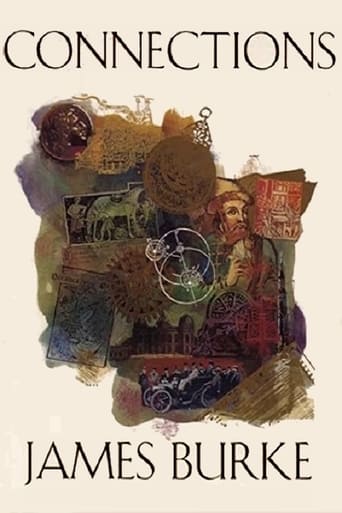
The First Series
(1978)
Overview
Taking an interdisciplinary approach to the history of science and invention, Connections explores an "Alternative View of Change" that rejects the conventional linear and teleological view of historical progress. To demonstrate this view, Burke begins each episode with a particular event or innovation in the past (usually ancient or medieval) and traces a path from that event through a series of connections to a fundamental and essential aspect of the modern world.
Cast
Episodes
The Trigger Effect 0.0
October 17, 1978
Both the beginning and the end of the story are here. The end is our present dependence on complex technological networ…
Death In The Morning 0.0
October 24, 1978
How did a test of gold's purity revolutionize the world 2500 years ago and lead to the atomic bomb? Standardizing preci…
Distant Voices 0.0
October 31, 1978
Telecommunications exist because the Normans wore stirrups at the Battle of Hastings- a simple advance that caused a re…
Faith in Numbers 0.0
November 7, 1978
Each development in the organization of systems (political, economic, mechanical, electronic)influences the next, by lo…
The Wheel of Fortune 0.0
November 14, 1978
The power to see into the future with computers originally rested with priest-astronomers who knew the proper times to …
Thunder In The Skies 0.0
November 21, 1978
A dramatically colder climate gripped Europe during the 13th century profoundly affecting the course of history for the…
The Long Chain 0.0
November 28, 1978
Often, materials discovered by accident alter the course of the world. In the 1600s Dutch commercial freighters control…
Eat, Drink, and Be Merry 0.0
December 5, 1978
When Napoleon marched huge forces across Europe, he needed an efficient way to store provisions. A Frenchman preserved …
Countdown 0.0
December 12, 1978
What happens when you combine a carbon arc light, a billiard ball coating, a spoked wheel and consecutive images? Motio…
Yesterday, Tomorrow, and You 0.0
December 19, 1978
"Why did we do it this way?" Essential moments from the previous programs are reviewed to illustrate the common factors…
